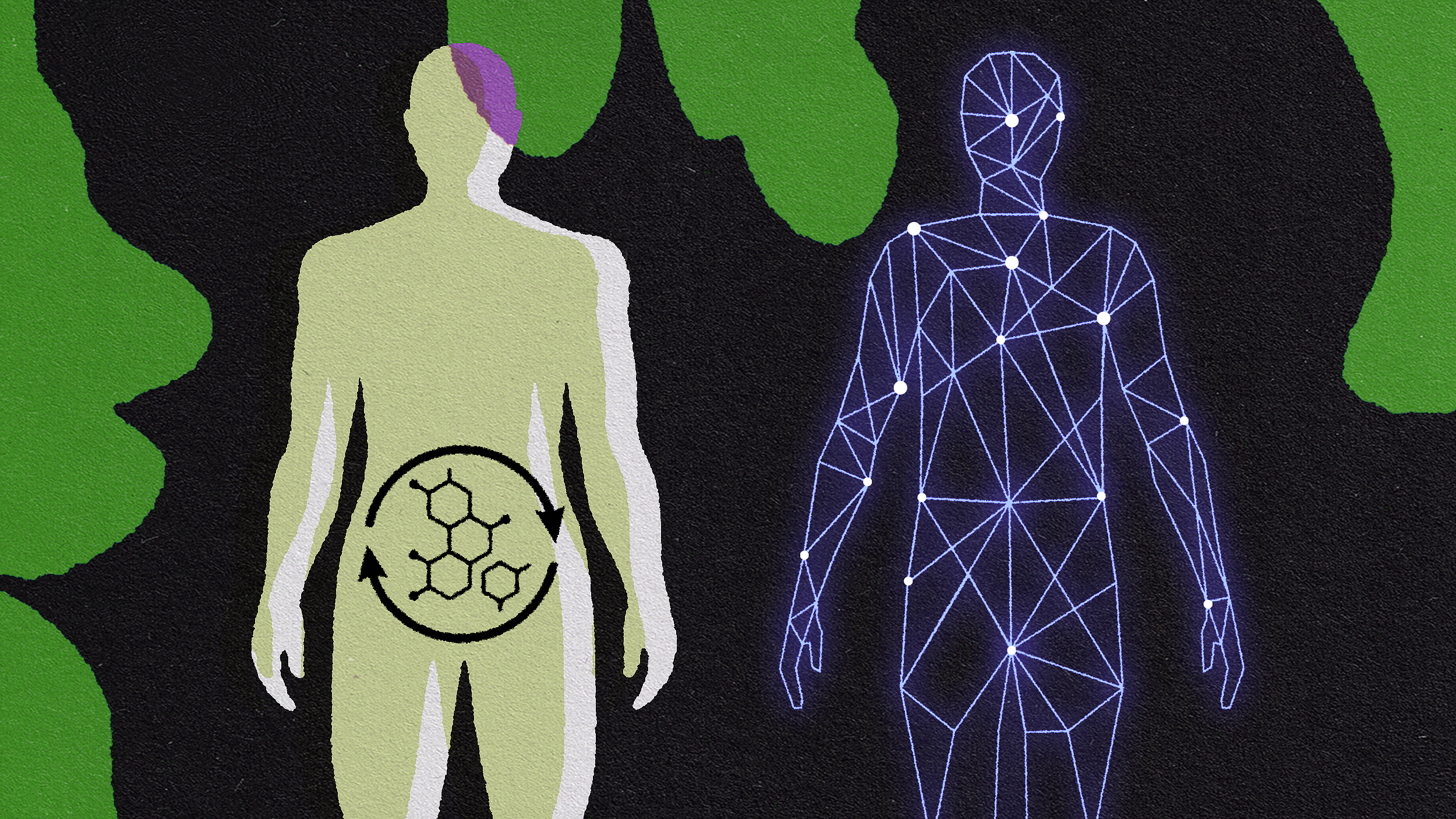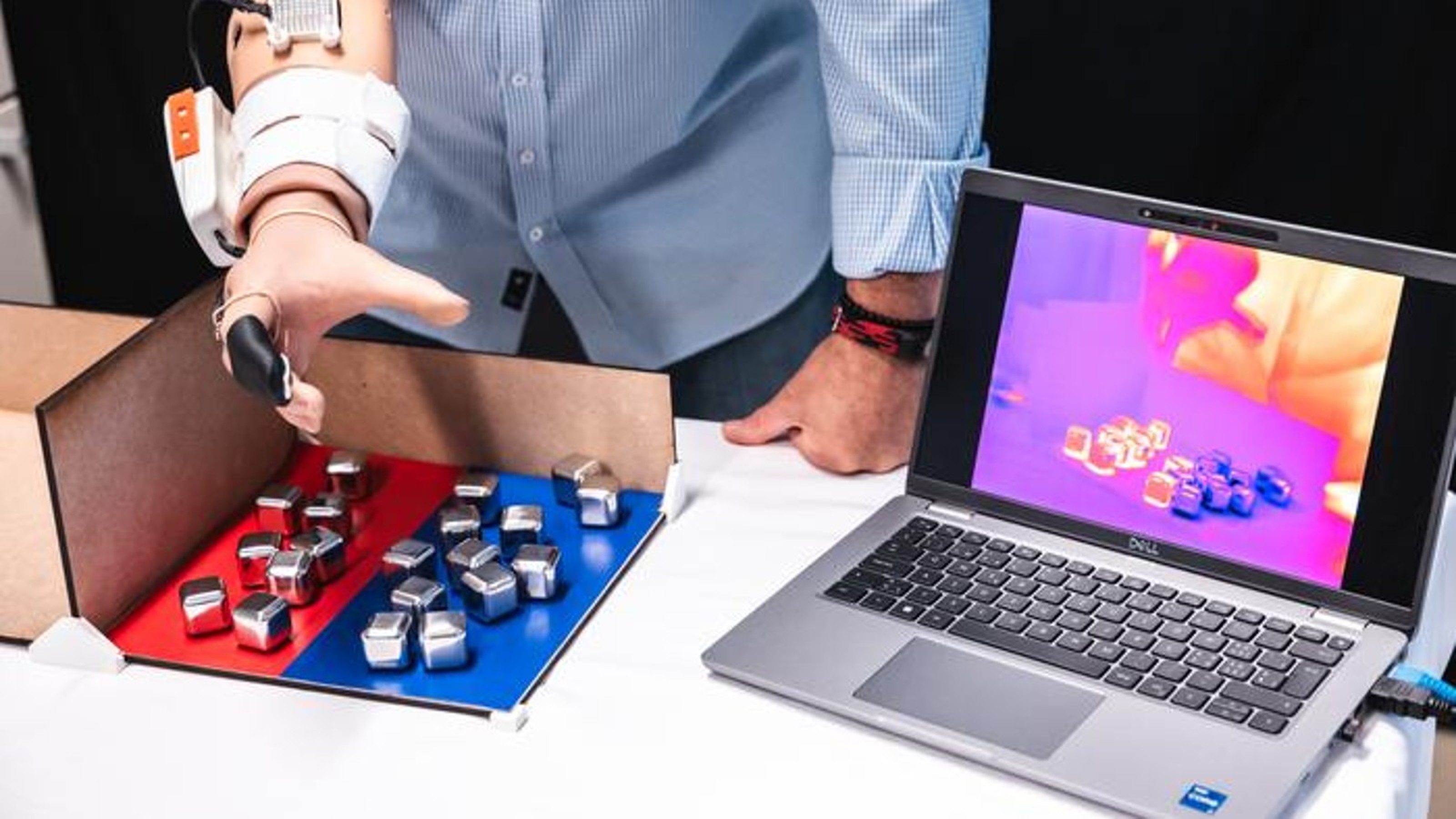From a personal tutoring service for his young cousin, Salman Khan’s company Khan Academy has grown exponentially into a massive, global, online engine for learning. As part of Big Think’s collaboration with Singularity University on Exponential Leadership, Khan explains here how his hobby grew into something that has changed the face of education on an unprecedented scale.
In late January 2015, Big Think, where the world’s leading thinkers examine the most essential ideas of our age, and Singularity University, a teaching organization and accelerator, came together to find definitive answers to what constitutes exponential leadership — true leadership for the age of exponential disruption. Salman Khan is featured in the resulting 2015 Exponential Leaders List.
Sal Khan: You rewind, geez, it's over 10 years now, I was a newly minted MBA and my background was in tech, but I found myself I was an analyst at a small hedge fund in Boston. And I had some family visiting me, in particular one member, a 12-year-old cousin, Nadia, and it just came out of conversation that she was having trouble with math. And so I dug a little bit deeper and it turned out that she had taken a placement test at the end of sixth grade; there's a lot of unit conversion on it. She claimed she didn't understand unit conversion and because of that they put her into a slower math track. And so when I heard that I said, "Hey Nadia how about when you go back home," she lived in New Orleans, which is where I was born and raised, "I can tutor you over the phone or over instant messenger or something." And she agreed so I started tutoring her.
This was fall of 2004. And long story short she learned unit conversion. And then I started to teach her a little bit more; I started to teach her some algebra. And she actually went from being behind her class to being ahead of her class. And at that point I joke I became a tiger cousin and I called up her school and I said, "I think Nadia Ramon should retake that placement exam." And they said, "Who are you?" And I said, "I'm her cousin." So they let her. And so she went from the slower math class all the way to the advanced math class. And so there's something here, this was a small intervention just for a few weeks with someone I cared about so I then started working with her younger brothers. And then you fast-forward two years, two things happen. One, word got around in the family that free tutoring was going on. So I found myself with on the order of 10 or 15 cousins and family friends every day after work around the country and I was getting on conference calls with them and what not. And I also started building software for them to make sure that they had strong foundations in things like basic arithmetic, fractions, decimals, exponents. And that software that I was making for them that gave them as much practice as they needed and solutions and a way for me as their tutor to keep track of what they were doing, that was the first incarnation of Khan Academy. That's when I got the domain name KhanAcademy.org.
And at that point it had absolutely nothing to do with videos. And even then I just viewed this as a hobby and I was kind of running this website. It was fun for me to hack on this software. But then you fast-forward a little bit more, and it was around 2008 that I started thinking this is a real thing. I'm sleeping and there’s some kid in Indonesia who is learning algebra. Like there's something real here; there's a real need that's being met. I wasn't sure whether there's a business model here. In fact I didn't want there to be a business model on it. I wanted people to understand that this is something that's social good; it's something that should just be out there; a public good for the planet.
And so in the early days of Khan Academy I said one, I'm doing this not because I want it to be a business; I'm doing this because I think it could be a huge social good for the planet and I want to do it in a way that is, for lack of a better word, unkillable. In fact it almost annoyed my MBA friends when they said, "Hey Sal you're doing all the stuff; what's your business model? Surely you have a business model?" I was like, "No, no I'm just doing it for fun." Because they wanted to push me on like hey — some of them almost didn’t want me to do it kind of like, "Why is this guy doing his thing if it didn't have some obvious two-year exit strategy type of model?" But I think it really worked well for me, for my mindset, and for Kahn Academy to just keep going, keep making content, being scrappy about it, doing whatever it took, and at some point it hits the traction and you start growing a lot faster. And then to the outside world it looks like an overnight success, but you know the real story.
This idea that we have at Khan Academy one of our designers introduced this idea, this notion of little bets. And if you can, you know, working with Nadia that was a little bet. I was betting half an hour a day and actually it was going to be a win even if it didn't scale into some huge, global not-for-profit organization reaching millions because even that little bet was going to benefit my cousin and I cared that she went on a good trajectory. And so I would say whatever space you're in it doesn't hurt, in fact there are definitely people who don't do a little experimentation and they hit some traction and they get huge, but it never hurts to really understand the problem, do it on a more narrowly scoped, understandable way and see if some of your hypotheses about this space are actually true. And then once you start getting validation of these hypotheses, then yeah as they say nail it and then scale it. You don't have to wait for it to be completely nailed, but once you feel that, "Hey I'm getting some validation here, enough for me to invest more," then you keep investing more; get more validation; keep going.





